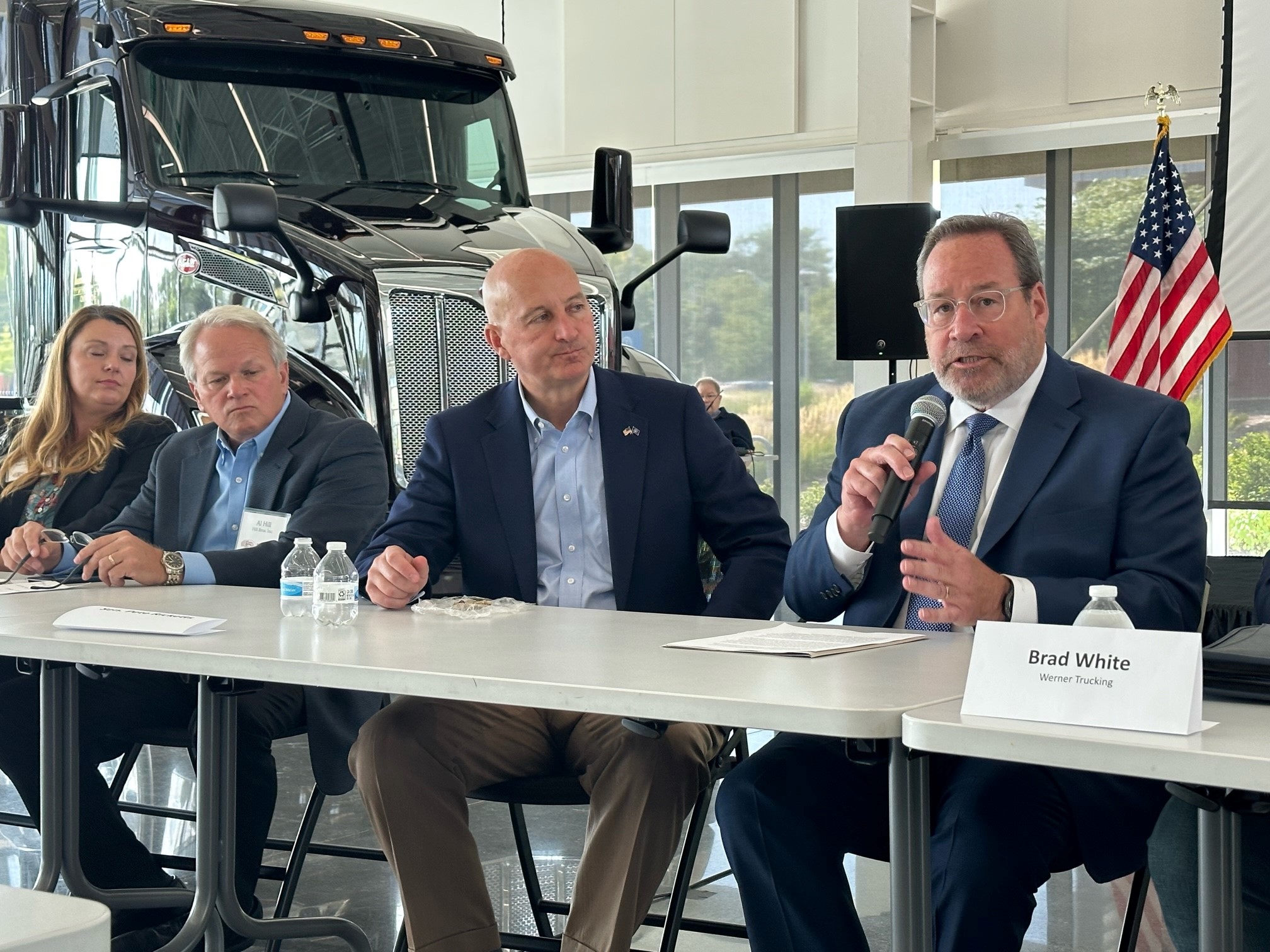
This week I was honored to participate in a roundtable discussion in Omaha, Nebraska, hosted by U.S. Senator Ricketts, on the future of transportation and the transition to zero-emission vehicles. It was an important discussion in the heartland of America, far from the agency halls of Washington, D.C. and Sacramento. Here in middle America is where those decisions being made by regulators in far-flung capitals will have the greatest impact on the American way of life.
As I conveyed to Senator Ricketts and the various transportation stakeholders at the table, trucking starts at 'Yes.' ATA has had a long collaborative relationship with regulators to develop standards that have delivered enormous emissions reductions across the industry, and we have demonstrated our commitment to the environment over the last four decades:
✅Today’s clean diesel technologies have reduced pollutants by 99 percent since 1988.
✅60 trucks on the road today equal the same emissions as one truck on the road from 1988
✅Over the past two greenhouse gas regulations, trucks have cut CO2 emissions by 1.37 billion tons, reducing oil consumption by 2.5 billion barrels by 2027.
Our industry is not averse to change, but this transition must be managed carefully to minimize risks to the supply chain, and to mitigate the collateral impact on driver capacity, added stress on already-critical truck parking issues, and safety concerns with heavy batteries. Importantly, over 90 percent of the trucking industry is comprised of small businesses operating five or fewer trucks. Forcing these small businesses into equipment that costs 2-3 times more than diesel and natural gas equipment will leave them far behind, putting them and the entire supply chain in peril.
Fleets that are testing and validating electric technology are finding that the technology, trucks, and required infrastructure, are at an early stage of
development:
🛑A recent ATRI analysis found that if today’s diesel tractors were replaced with much heavier electric trucks - one-third of the truckload sector would suddenly be too heavy for U.S. roads. The result: additional electric trucks would be needed to move the same amount of freight as a diesel truck. For every 1,000 trucks, an additional 343 trucks would be required due to battery weight.
🛑Available battery-electric trucks operate with limited range. Diesel equivalent trucks spend 15 minutes fueling anywhere in the country and then travel about 1,200 miles before fueling again. In contrast, long-haul battery electric trucks have a range of about 150-330 miles and can take up to 5-8 hours to charge-assuming chargers are available.
Without significant breakthroughs in battery electric and hydrogen technologies, the industry cannot reach a point of widespread adoption. However, there are technologies that are validated and offer a lower entry cost that can be important solutions in our continued path toward zero:
✅Renewable diesel can reduce greenhouse gas emissions by 75%. It uses the same infrastructure as diesel, has few performance issues, and is cost-competitive.
✅Natural gas is clean-burning, energy-dense liquid fuel that is abundant, quieter, cheaper and residue free.
✅Flex-fuel hybrid technologies provide a way for such trucks to gain early entry into the marketplace by overcoming limited range, cost, and battery-weight concerns.
✅Battery-electric technology shows promise in limited range and return-to-depot operations where charging downtime can be scheduled.
✅Hydrogen shows enormous potential for long-haul operations, reducing weight constraints and charging downtimes from BEVs.
No single technology can deliver our industry to a zero-emission future. An all-of-the-above strategy is a necessary bridge that will support the size, scope, diversity and complexities of trucking operations and supply chain dynamics. Building that bridge requires smart, sensible, and pragmatic policies and level-headed lawmakers like Senator Ricketts who understand trucking and what we do day-in and day-out to meet the daily needs of virtually every citizen in this country.
Conversations like the one in Omaha is how that work gets done.